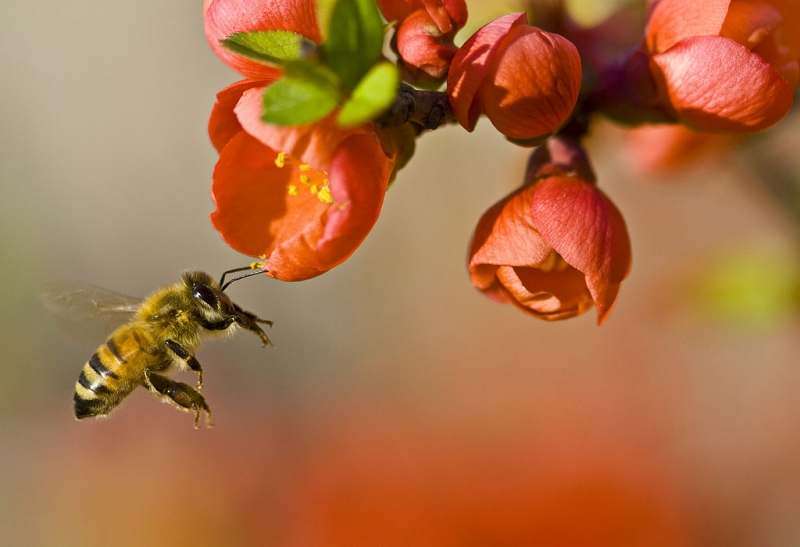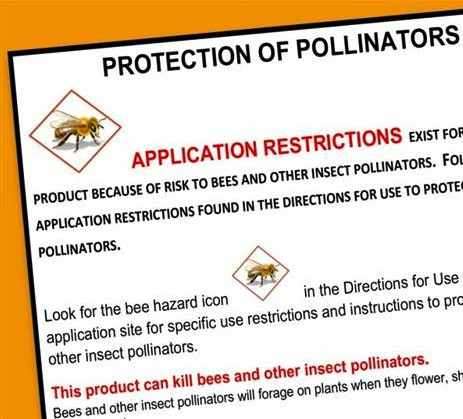Environmentalists are praising the Lowe's hardware chain for making a commitment to eliminate neonicotinoid pesticides –a leading contributor to global bee declines – from its stores.
Following a two-year public campaign urging Lowe's and other garden retailers to take action, the company announced Thursday it will phase out neonicotinoids as suitable alternatives become available.
"Following studies that say many factors, including neonicotinoid pesticides, could potentially damage the health of pollinators, Lowe's has committed to take several steps to support pollinator health," says the company's new Corporate Social Responsibility Report.
Lowe's also promises to offer greater non-neonic product and organic selections and work with growers to eliminate the use of neonic pesticides on bee-attractive plants. The company also says it will try to educate customers about pollinator health.
Friends of the Earth and its allies led the campaign that urged Lowe's and others to drop neonicotinoids and neonic pesticides from their shelves. More than one million people signed petitions and thousands of activists delivered letters directly to Lowe's stores in cities across the U.S. and Canada asking for this change.
"We are pleased Lowe's is listening to consumer concerns and to the growing body of science telling us we need to move away from bee-toxic pesticides by taking steps to be part of the solution to the bee crisis," said a director at Friends of the Earth. "Bees are canaries in the coalmine for our food system and everyone, including the business community, must act fast to protect them."
The European Commission in 2013 banned the use of three neonicotinoids on flowering plants after the European Food Safety Authority found that exposure to the chemicals created "high acute risks" to bees.
Meanwhile, the US Environmental Protection Agency is reviewing their use after President Obama last year established a national Pollinator Health Task Force to study the causes of colony collapse disorder. Pesticides, varroa mites, viruses, and fungi all appear to contributors to the widespread death of bees. Until the study is completed, the EPA said last week, it was unlikely to approve new uses for the class of pesticides.
Other governments aren't waiting for definitive studies. Last week, the City Council of Portland unanimously approved a ban on the use of neonicotinoid insecticides on city-owned property effective immediately.
(Photo: Wikipedia)










Be the first to comment